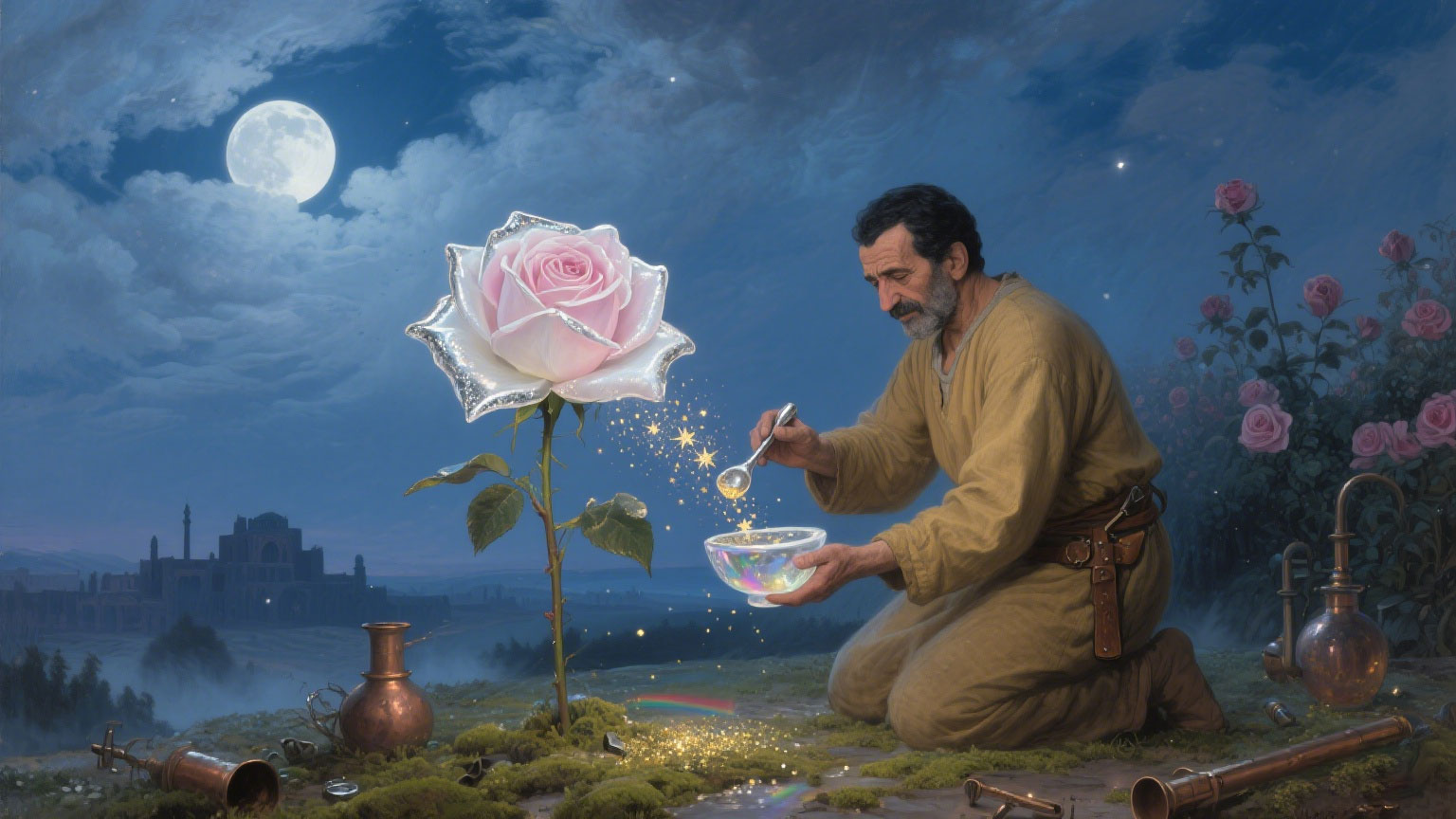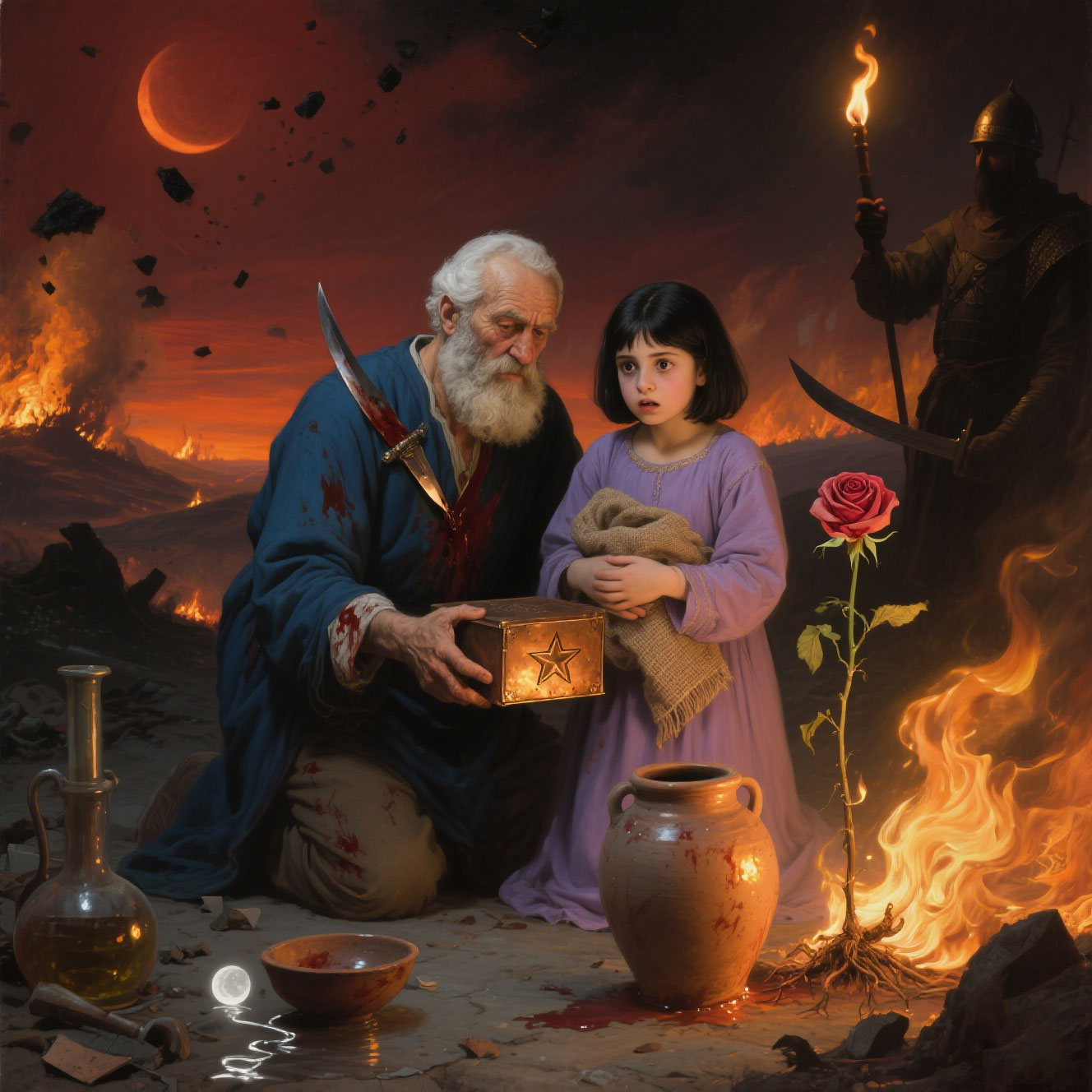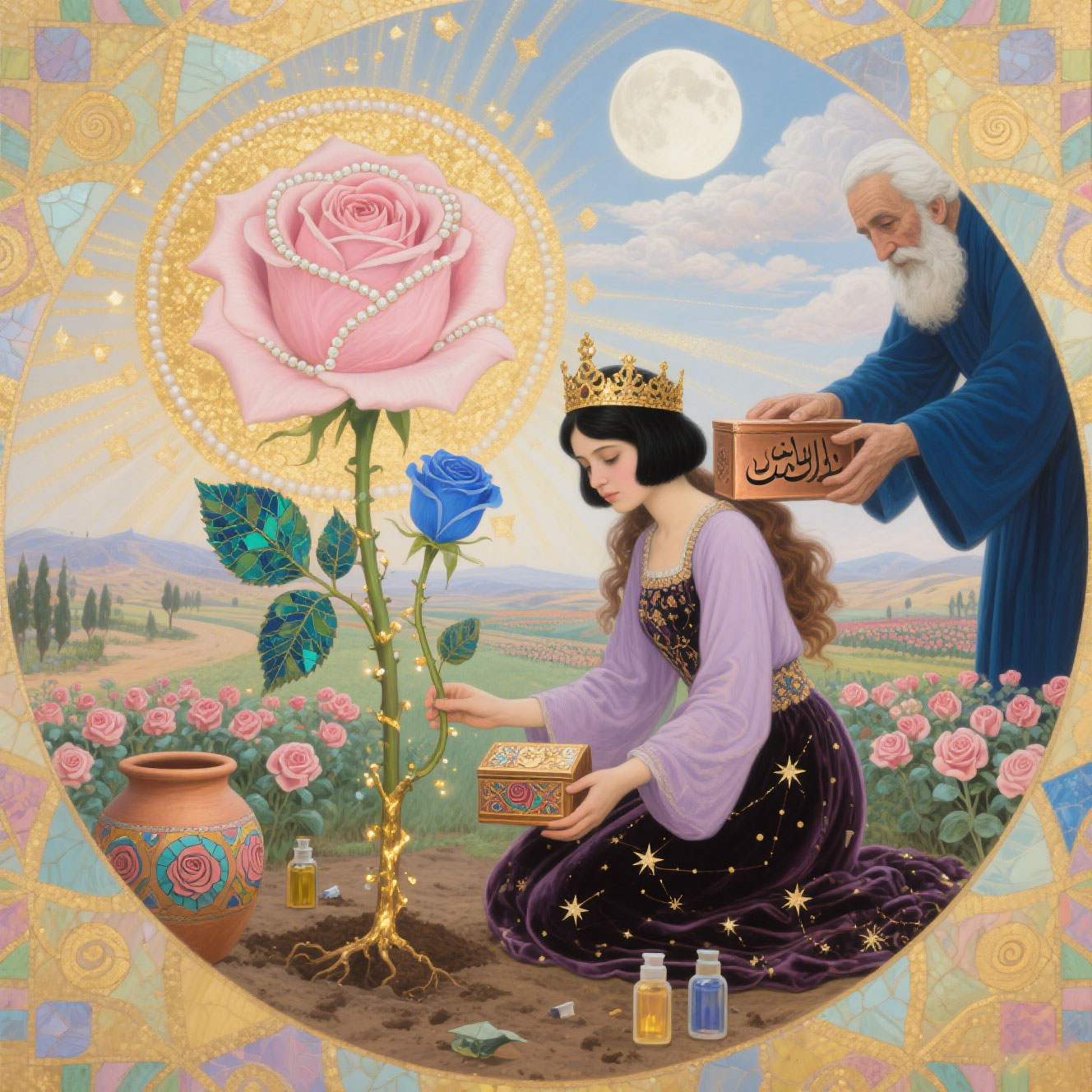+86-13516938893
Menu
global purchase
Outside the ancient city of Shiraz in Persia, there once lay a rose valley known as the "Garden of the Moon." Legend has it that in the 5th century BCE, the roses here were no ordinary flowers—their petals edged with silver radiance, their cores holding tiny stardust, a gift from the Moon Goddess to Persian sages. Guarding this garden were the "Rose Artisans," a lineage of craftsmen who mastered the secret of distilling "Moonlight Essential Oil" from stardust roses. This oil could heal wounds and even awaken slumbering memories.

The artisan of that era was Nasir, whose daughter Mah was a cheerful girl who loved to squat among the flowers, counting stardust on the petals. Nasir often told her: "Stardust roses are nourished by 'heartlight.' If your heart is clouded with distracting thoughts, their petals will lose luster; but watered with true love, the oil will reflect glimpses of the future." Mah, half-understanding, embroidered her father’s words onto her apron.
Tragedy struck on a moonless night. War broke out between Persia and a neighboring kingdom. The enemy general, hearing tales that Moonlight Essential Oil could boost courage, led soldiers to storm the rose valley. To protect the last millennial rose, Nasir shielded it with his body, taking a blade to his chest. With his final breath, he pressed a copper box containing the oil’s secret recipe into Mah’s hands: "Remember, the essence of the oil is not power, but the soft light that keeps hearts gentle." The enemy set the garden ablaze; stardust roses withered in the flames, leaving only the roots of the millennial rose, which Mah hid in a clay jar.
After the war, Mah fled to ruins on the edge of the desert, the clay jar in tow. She tried to replant the rose using the recipe, but the barren soil caused buds to wither before blooming. Three years passed—Mah’s hair had grayed, her fingers calloused from endless tilling, yet she never gave up. One winter night, her father appeared in a dream: "Seek the Sufi elder. He waits beneath the Wind Tower in Kerman."
Mah trekked for months to reach the Wind Tower. The elder handed her a glass lamp: "Stardust roses need 'Water of Sacrifice'—boil morning dew with your most cherished memory." Mah’s eyes widened. She opened Nasir’s copper box, revealing half a rose petal she’d drawn as a child. She dropped the petal into the dew, recalling the days her father taught her distillation; tears fell into the water, which shimmered with silver light.
When she poured this "Memory Water" over the rose roots, a miracle unfolded: shoots burst from the earth, blooming seven days later into flowers more radiant than ever, their petals glittering with stardust like scattered diamonds. Mah distilled the oil as instructed, and when the first drop fell into the bottle, it revealed a vision—a century later, children laughed in the valley, no shadow of war in sight.

The elder sighed softly: "You nourished the roses with longing and patience. That is the true magic of Moonlight Essential Oil. It grants no power, but lets memories of love and peace endure forever."
Mah became the new Rose Artisan. She never married, but took in orphaned children, teaching them to grow roses and distill oil. On her deathbed, she passed the copper box to her youngest pupil: "Stardust fades, roses wilt, but as long as heartlight burns, fragrance will never perish."
Today, millennia later, Shiraz’s rose valley still blooms. Locals say that on full-moon nights, if you listen closely, you can smell faint stardust in the wind—the rustle of Mah’s apron brushing flowers, the whisper of Nasir’s copper box: True eternity is not a flower that never dies, but the tenderness and hope passed down through generations.